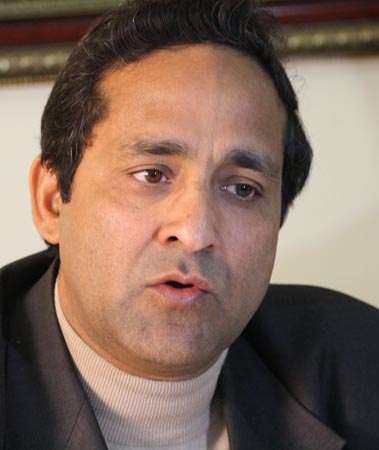We were a part of the Coordination Committee; yet one of our constituents, Kashmir Houseboat Owners Association (KHOA) organized a free Langar for the Yatris in Kashmir. And you have seen that traders organisations from Jammu actually connived what was happening on the Highway,” says Dr Shah.

FCIK President Shakeel Qalandar says that people in Kashmir were ready to consume floor imported into Jammu and Kashmir rather than the brands produced in Jammu. His words are substantiated by Managing Director KC Foods, Sudhir Kumar. “We did suffer due to boycott of our goods in Kashmir during the agitation. However, we managed to convince our distributors in Kashmir that KC Foods belongs to this state and they should promote and prefer it over other companies. Today there is no such problem,” Sudhir told Kashmir Life.
Kumar, however, believes that his community was forced to join the agitation rather than willingly acting against valley consumers. “Like business people in Kashmir, we also were forced to join the agitation against our will and as soon as we found an opportunity we dragged our feet to re-establish the severed trade relations with our Kashmir based dealers.”
The trade relations, which Kumar points to, have been established over the past 20 years. Prior to 1989, trade was mainly handled in Kashmir as it consumed more than any other part of the state. It is only during the past 20 years that trade centres shifted to Jammu one by one. It was this status that Kashmiri traders wanted to reclaim at the peak of hostilities between traders from the two regions.
Javed A Mughal, who heads Kashmir Distributors and Stockists (FMCG) Association, says, “We want economic sense to prevail. If you have over seventy percent consumers in Kashmir, why will you deny them the right to stock the goods they consume?”
Kashmir consumes over 85 percent of Rs 1000 crore pharmacy import, but not a single company has its C&F in Srinagar. Post-blockade, the druggists association said they would not use any medicine that the manufacturers send through Jammu. The reaction was unexpected. Pharma majors like Cipla, Glaxo Smithkline, Zydus, Pfizer, Torrent, Cadila, Novartis, Intas, and Wochadart simply refused to create C&F in Kashmir and stopped supplies.
“We would have made these companies kneel down but other businessmen ditched us at a time when we were 100 percent on target. We were adamant not to resume business with Jammu people, but other traders clandestinely started it. In some cases, the ties had not been severed at all,” says Fayaz Ahmad Azad, Joint Secretary JK Chemists and Druggists Association. “Besides, pharmaceutical companies pressurised individual distributors which also proved a stumbling block.”
The shortage of medicine and the effect of strangulation by Jammu traders were evident from the divisional commissioner Kashmir’s letter to All India Pharmaceutical Manufacturers Association. On August 5, 2008, regarding shortage of medicine in Kashmir valley following the economic blockade, the divisional commissioner (vide his letter Div Com/PRO/Misc dated August 5, 2008) had informed the pharmaceutical manufacturing companies about the shortage of medicine in the Kashmir. The letter was strongly opposed by J&K Pharma Association in Jammu.
However, the ‘belligerence’ of the Jammu traders can be gauged from the statement of JKPA president Rakesh Gupta who threatened pharmaceutical companies against entering any direct deals with ‘anti-national’ Kashmir based distributors. Pharmaceutical giant Lupin that, according to Kashmir Medical Sales Representative Association’s (KMSRA) general secretary Neyaz Ahmad, has a monthly turnover of Rs 80 lakhs in valley and Rs 30 lakhs in Jammu, was the first and the only company that bypassed Jammu to disturb the prevailing distribution system last year. Gupta initiated non-cooperation towards the company while threatening others of the same through newspapers.
“Immediate non-cooperation to Lupin Laboratories in Jammu w.e.f September15, 2008 is being announced as it is the first to attempt in disturbing the present distribution system. In case Lupin Labs does not give a written undertaking/apology towards the matter within three days, then non-cooperation shall be extended to the company throughout India for anti-national character by various associations and political parties,” read the statement by Gupta.
The middlemanship and the resultant control over supplies are not limited to pharmaceuticals only. Valley imports 720 tonnes of vegetable daily that amount to 2.6 lakh tons annually.















